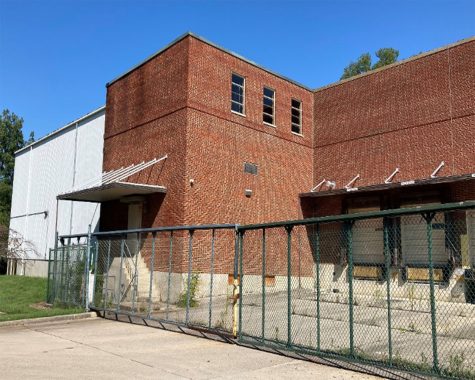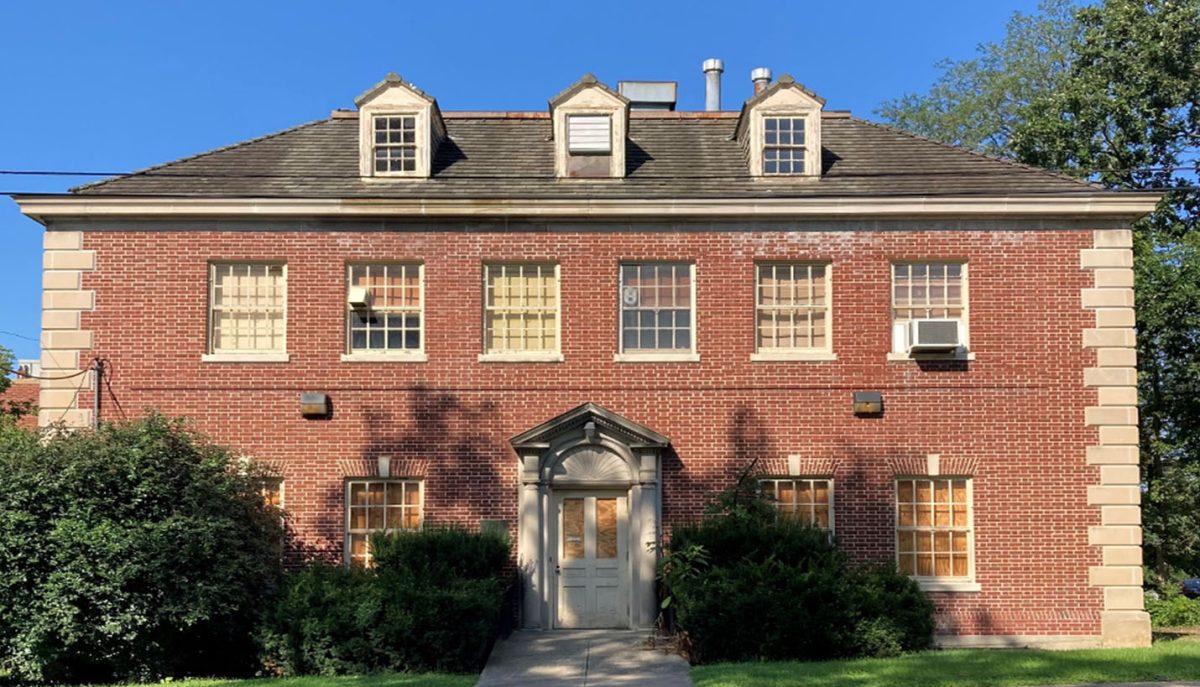Miami starts process of renovating workforce development building
The 90 year-old building, at 20 S. Elm St., has been vacant for six years. The city and Miami now envision it becoming a hub for technology, entrepreneurship and creativity.
September 10, 2021
Miami University, partnering with the City of Oxford, has hired building and design firm Messer Construction Company to design and reconstruct the vacant building located at 20 S. Elm St into a technology, entrepreneurship, and creativity (TEC) hub called College@Elm.
The building will serve as an innovation and workforce development center for anyone in the community to participate. It will allow creative entrepreneurial ideas to be explored, as well as offer the necessary resources to bring these ideas to fruition.
The design process is set to occur over the next few months, with initial construction beginning in January or February of 2022, according to Assistant City Manager Jessica Greene.
Construction of the project is expected to take 18 months, concluding in mid to late 2023. The original estimated total cost for the project was $10.7 million, but with new additions in the design phase, that number is expected to rise, Greene said.
The project still needs additional funding, but it has already received $1 million from the state, $2 million from alumni, and most recently, a $1.5 million grant from private nonprofit JobsOhio. Additional financing is being assessed, but the majority is expected to come from grants and fundraising through the university.
According to Greene, the city provided a sewer system upgrade to allow for the development of the building, and it may help pave the parking lot, though the cost is still being explored.
Miami President Gregory Crawford began the project with Miami’s director of institutional relations Randi Thomas in February of 2020. From there, they looped in the city to collaborate on the project.

The decision to renovate the vacant Elm Street building is complemented by the Oxford Community Arts Center, which sits only one block to the east on College Avenue.
“We’re really hoping to have some synergies between the two buildings; between the arts and innovation,” Greene said.
Because the idea for the College@Elm came just at the onset of the COVID-19 pandemic, the project fell behind schedule as the attention of the city and university was diverted for several months.
The recent resumption of the project has come at a critical time for the community.
According to Thomas, Oxford lost approximately $50.2 million due to the pandemic. It suffered largely due to the loss of visitors to sporting events, entertainment, tourism, spending at hotels, restaurants and even gas stations.
Because COVID-19 had impacted the city, Thomas said he started looking at how they could address some of the economic impacts from the pandemic. The new hub may address potential issues such as displaced workers, a number of businesses permanently closing and Oxford’s eight-month economy, he said.
The new business hub will create an estimated 74 jobs with a payroll of $3 million.
“We are hoping Oxford isn’t a long-hauler from a municipalities perspective,” Thomas said. “We want businesses that diversify the Oxford economy. We’re confident that in the short-term College@Elm will help the city start to recover.”
College@Elm also anticipates improving the eight-month economy that the city has been experiencing for decades. Introducing a year-round cultivation of businesses will open the opportunities for a full 12-month economy instead of relying on the student population.
In the 2020/2021 school year, Miami students started 35 startups, and Thomas hopes that College@Elm can further assist and continue that momentum by helping launch at least three new startups every year, whether they are created by Miami students, alumni or Oxford residents.
Miami University, the City of Oxford and the Fischer Group, an anchor for manufacturing and prototyping, will all collaborate to shepherd new startups in the area.
“The primary purpose is to provide high quality experiential learning opportunities based on real business-world experiences to students and residents,” Thomas said. “Everything else flows afterwards. Students are not just reading a book, they are doing real tangible things that have real results.”














